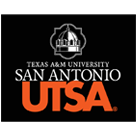US Spanish: A Revivalistics approach for community engaged practices and cultural reclamation in 21st century ‘Merica
Abstract
While the number of Latinos/as/x who speak Spanish at home increased along with the growing Latinos/as/x population, the share of Latinos/as/x who speak the language has declined over the past decade (Pew Research Center, 2021). Particularly in the top US metro areas with the largest Latinos/as/x population, having the San Antonio-New Braunfels metro areas the largest declines. The predominance of new births over immigration as a source of Latinos/as/x population growth in the 21st century represents a reversal of historical trends, however the percentage of Latinos/as/x who speak Spanish at home has declined dramatically in 2021, especially among the U.S.-born population (from 66% to 55%), according to the Pew Research Center (2021).
Given that the heritage learners’ home environment has been monolingually compromised, the questions we raise here are: (RQ1) How could current SHL (Spanish Heritage Language) scholars, educators, learners, and activists incorporate community engaged practices that model our commitment to our students, their families and communities, and help increase the level of language usage and exposure to reverse this trend?; (RQ2) To what extent recognizing, validating, and integrating the cultural assets and funds of knowledge of the SHL communities we serve, would bring their linguistic lived experiences in Spanishes to the forefront?
To answer that, in this presentation we will: i) Question the purist conceptualization of the ‘named language Spanish’ from an anti-essentialist standpoint, (Otheguy et al. 2015); ii) Raise awareness of the multiplicity of Spanishes (Bessett & Carvalho 2022) that are obscured by the pervasive monoglossic ideology that permeate the general understanding of Spanish in the US; iii) Provide a model of engaged scholarship (Manzo et.al., 2020) that invites the community to partake in the transdisciplinary, emancipatory and critically aware field of inquire of language revivalistics (Zuckermann, 2020).
Keywords: Spanish heritage language, revivalistics, language revitalization, language ideologies, Spanishes, community engaged practices, cultural reclamation.
US Spanish: A Revivalistics approach for community engaged practices and cultural reclamation in 21st century ‘Merica
While the number of Latinos/as/x who speak Spanish at home increased along with the growing Latinos/as/x population, the share of Latinos/as/x who speak the language has declined over the past decade (Pew Research Center, 2021). Particularly in the top US metro areas with the largest Latinos/as/x population, having the San Antonio-New Braunfels metro areas the largest declines. The predominance of new births over immigration as a source of Latinos/as/x population growth in the 21st century represents a reversal of historical trends, however the percentage of Latinos/as/x who speak Spanish at home has declined dramatically in 2021, especially among the U.S.-born population (from 66% to 55%), according to the Pew Research Center (2021).
Given that the heritage learners’ home environment has been monolingually compromised, the questions we raise here are: (RQ1) How could current SHL (Spanish Heritage Language) scholars, educators, learners, and activists incorporate community engaged practices that model our commitment to our students, their families and communities, and help increase the level of language usage and exposure to reverse this trend?; (RQ2) To what extent recognizing, validating, and integrating the cultural assets and funds of knowledge of the SHL communities we serve, would bring their linguistic lived experiences in Spanishes to the forefront?
To answer that, in this presentation we will: i) Question the purist conceptualization of the ‘named language Spanish’ from an anti-essentialist standpoint, (Otheguy et al. 2015); ii) Raise awareness of the multiplicity of Spanishes (Bessett & Carvalho 2022) that are obscured by the pervasive monoglossic ideology that permeate the general understanding of Spanish in the US; iii) Provide a model of engaged scholarship (Manzo et.al., 2020) that invites the community to partake in the transdisciplinary, emancipatory and critically aware field of inquire of language revivalistics (Zuckermann, 2020).
Keywords: Spanish heritage language, revivalistics, language revitalization, language ideologies, Spanishes, community engaged practices, cultural reclamation.

